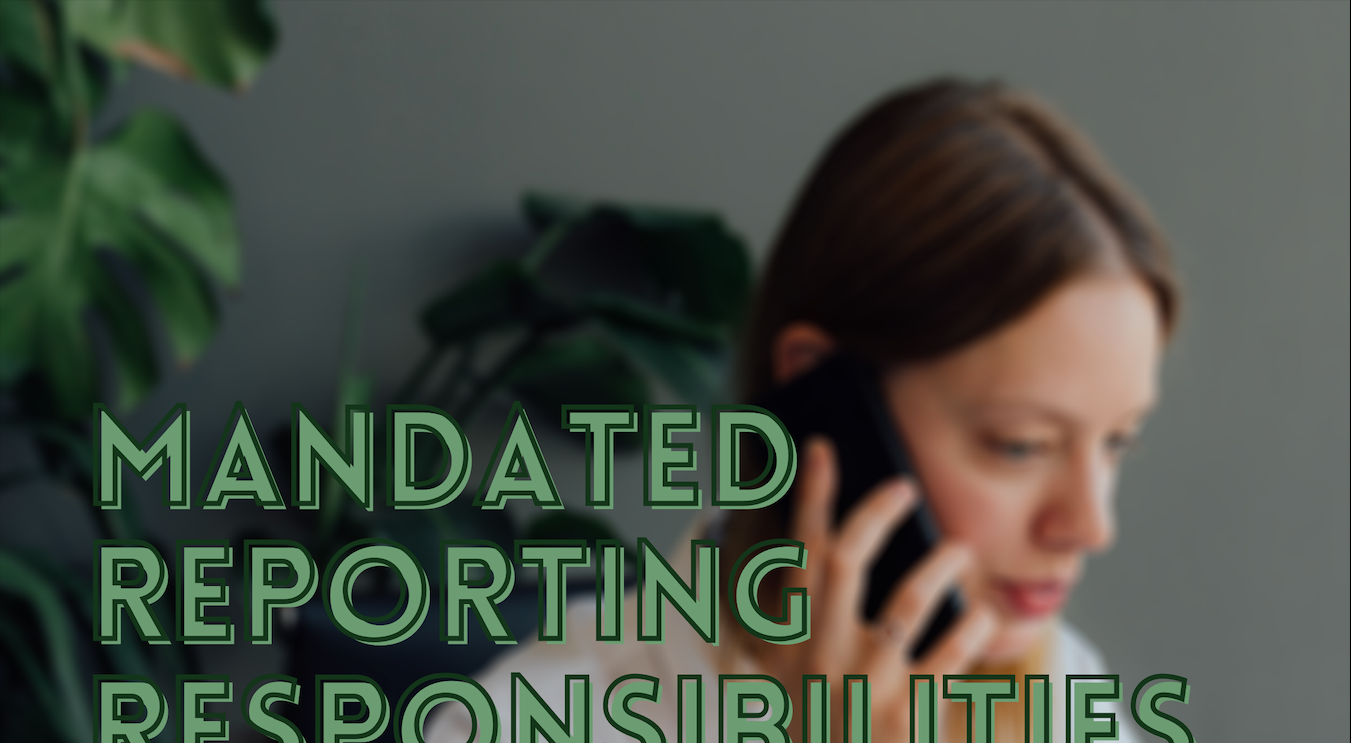
The Importance of Mandatory Reporting
If you have been following Verve Lead’s posts, you will have heard many times about the importance of mandatory reporting. You know the complications that can arise ethically and personally when reporting is handled incorrectly or poorly. This topic arises often because, more than any other competency required in mentors and supervisors, the failure to report has serious legal ramifications and can lead to even more devastating consequences. It can result in serious bodily, psychological or emotional harm or even death.
In my experience, there is little mandatory reporting required. Much more often, we are conversing with someone wrestling with inner thoughts rather than planned actions. For example, if a person admits they are using pornography and feels guilty about it, we don’t need to go to the police. It’s only when you are aware that abuse or harm is imminent or has already happened that you should file. However, you should always be ready and willing to report.
Knowing How to Respond
Most mentors or supervisors have had a client who says something that sounds like a red flag. Whether that is hinting at abuse or revealing suicidal thoughts, we need to know how to respond. Knowing when the client is a danger to themselves or others is an acquired skill. Clients also rarely share this information easily, and can be upset when their words are reported… This is why it is essential to include mandatory reporting in our contracts, communicate to the client how mandatory reporting works, and make sure they are aware of our legal obligations.
We need to know what we are responsible for. What process must you follow to make a mandatory report? Who do you go to? Local police? Sheriffs? When zooming in with clients in other states or countries, for example, you need to know their responsibilities for mandatory reporting in their jurisdiction (at least have a general understanding of the local laws), and you should advise your client to do the same. You should have honest conversations with your client, informing them of your responsibilities and asking them if they understand their own. These are certainly not things you want to discover during a crisis when your attention is needed elsewhere.
If this feels overwhelming, there are some options:
- You can visit the following site:
- Qld.gov.au mandatory report
- You can also go to this helpline: https://www.acc.org.au/safer-churches. There are people waiting to help you find answers.
- You can always speak to your own mentor or professional supervisor. A second opinion can guard against making unfair or unfounded accusations. At the same time, your supervisor can help you take the appropriate action. Obviously, confidentiality needs to be maintained, but they can help you brainstorm answers to your situations; just make sure not to share names or reveal personal details.
Reflection Questions:
- Do you know your local reporting laws?
- Have you communicated these laws to your client?
- Who can you speak to if you are uncertain about whether or not to report an issue?
Continue reading with these articles…
Recent Posts
Categories
- Coaching
- Emotional Health
- Empowering Transformative Action
- Flourish
- Gauges
- Grief
- Grief
- Healthy Emotional Intelligence
- Healthy Lifestyle
- Mature Disciple: foundational competency for mentoring
- Mentoring Excellence
- Professional Supervision
- Reduced Risk
- Replenish
- Resources
- Seasoned Christian Leadership
- Sustainable Life
- Thriving Relationships
- Uncategorized
- Videos
- Vital Spirituality
- Well-Being
- Well-Being Mentoring



